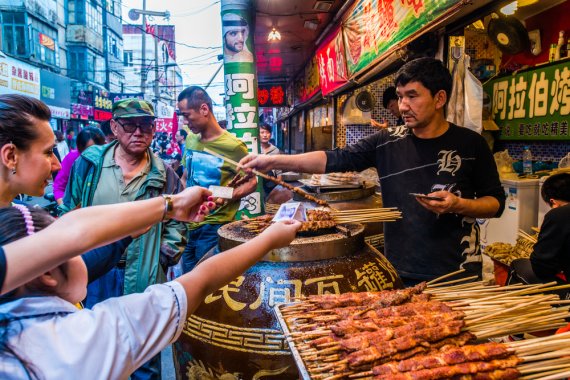© Shutterstock
Between 1980 and 2010, the livestock market in China grew more quickly than anywhere else in the world. The number of animals tripled, and the production of animal-based protein increased by a factor of nearly five. As a result, China exceeded the United States and Europe as the world’s largest livestock producer.
This revolution mainly happened in landless companies near cities. Compared to the small-scale Chinese farmers, these large-scale industrial companies produced less pollution per kilo meat. However, the growing production also caused an enormous increase of feed import into China (by a factor of 49 in 30 years’ time), a growing waste of manure and increased water pollution.
Animal feed
The meat revolution is still ongoing, says Bai, as half the Chinese population is still only eating little meat and will increase its meat consumption in the years to come. If the government doesn’t change its policies – the ‘business as usual’ scenario – China will have to import increasing amounts of feed to meet the growing demand. In 2030, these imports will equal all the feed that is now being traded worldwide. This scenario would therefore cause serious problems on the global market.
Bai, who is PhD candidate at the Soil Quality department in Wageningen, suggests an alternative scenario in his publication in Science Advances. His advice is to combine crop production and livestock production, by utilising more manure in agriculture and utilising more crop residues for meat production. Bai claims that, as a result, China could significantly reduce the use of chemical fertilisers, halve the emissions of greenhouse gasses and spoil less food and feed.
Less waste
If China wants to transform to a sustainable meat production, the government must redesign its food policy, says Bai. The government should strengthen environmental policies. Locations of livestock farms should be planned away from watercourses. And food companies should combine crop and animal production and introduce new technologies to increase food production efficiency. Less food waste will benefit the environment and will make China more self-sufficient in feed and meat.

